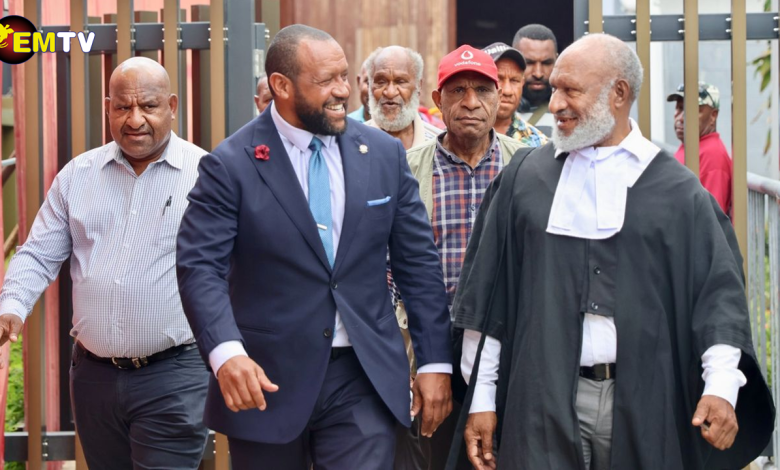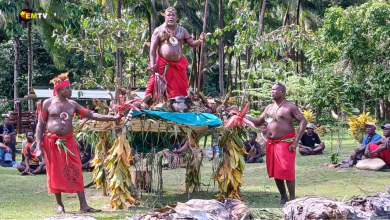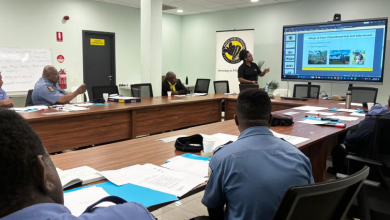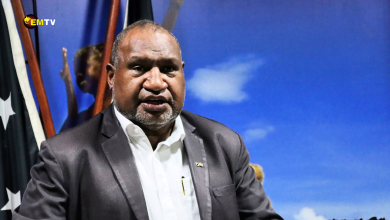SUPREME COURT ORDERS PARLIAMENT TO DEBATE VOTE OF NO-CONFIDENCE MOTION IN PRIME MINISTER

By James Guken
The Supreme Court of Papua New Guinea has ruled that the rejection of a motion of no confidence in the Prime Minister, made on 27 November 2024, was unconstitutional.
The court has ordered Parliament to reconvene on 8 April 2025 to debate the motion.
The ruling follows an application filed by Member for Chuave Open and Deputy Leader of the Opposition James Nomane.
Nomane challenged the decision by the Private Business Committee (PBC) to disallow the motion under Section 165 of the Standing Orders, which prevents a motion from being introduced if it is the same in substance as a question resolved within the previous 12 months.
The court found that this provision was unconstitutional when applied to motions of no confidence.
The five-judge bench, comprising Chief Justice Salika, and Justices Cannings, Hartshorn, Kariko, and Dingake, declared that Section 165 was inconsistent with key provisions of the Constitution, including Sections 50, 111, 142, and 145, which outline the rights of MPs and the process for removing a Prime Minister.
The court also ruled that:
As part of its orders, the court instructed the Speaker to recall Parliament on 8 April 2025 and ensure the motion is debated. The Private Business Committee must also deliver the motion to the Clerk of Parliament for listing on the notice paper.
* The Private Business Committee’s decision to reject the motion was unconstitutional and breached MPs’ rights under Section 111 of the Constitution.
* The earlier rejection of a no-confidence motion on 12 September 2024 did not prevent MPs from submitting another motion against the same Prime Minister.
* The decision to block the motion was contrary to the principle of collective ministerial responsibility under Section 141.
* The Supreme Court has jurisdiction over the matter, and the decision of the Private Business Committee is subject to judicial review.
Additionally, the court ordered the interveners—the Speaker and the Attorney-General to pay Nomane’s legal costs.
This ruling sets a significant precedent for parliamentary procedures in Papua New Guinea, reinforcing the constitutional right of MPs to challenge the Prime Minister through a vote of no confidence.






